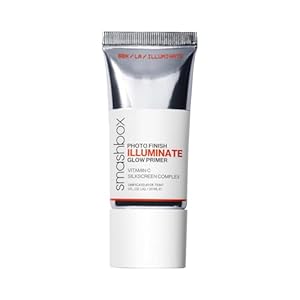
To safeguard your skin during the unforgiving winter season, adopting a consistent skincare routine is crucial. However, beyond moisturizing and cleansing, there are other factors to consider in your quest for healthy winter skin. From the foods you eat to the lifestyle choices you make, various elements can impact the condition of your skin during colder months. By understanding how these factors influence your skin, you can better tailor your skincare regimen to combat winter’s harsh effects effectively.
Hydrate Your Skin
To maintain healthy skin during winter, ensure you regularly hydrate it with a rich moisturizer. The dry air during winter can strip your skin of its natural oils, leading to dryness and irritation. By using a moisturizer that suits your skin type, you can help lock in moisture and prevent your skin from becoming parched.
Look for moisturizers that contain ingredients like hyaluronic acid, glycerin, or shea butter, as these can provide intense hydration. Applying moisturizer right after showering or washing your face can help seal in moisture while your skin is still damp. Don’t forget to also moisturize your body, not just your face, to keep your skin soft and supple all over.
Consider using a heavier moisturizer at night to give your skin an extra boost of hydration while you sleep. And if you’re heading outdoors, don’t skip on sunscreen, as the sun’s rays can still damage your skin even in the winter months. Remember, hydrated skin is happy skin!
Use Gentle Cleansers
Consider opting for gentle cleansers to protect your skin’s natural oils during the harsh winter months. In cold weather, harsh cleansers can strip away your skin’s essential oils, leading to dryness and irritation. Look for mild, fragrance-free cleansers that won’t further dry out your skin. These gentle cleansers will help you maintain a healthy skin barrier and prevent moisture loss.
Avoid using hot water when cleansing your face, as it can be too harsh and strip your skin of its natural oils. Instead, opt for lukewarm water to wash your face gently. When cleansing, use soft, circular motions to avoid excessive rubbing that could damage your skin.
Additionally, choose cleansers with hydrating ingredients like hyaluronic acid or glycerin to help replenish moisture while cleansing. These ingredients will leave your skin feeling clean and refreshed without causing dryness. By incorporating gentle cleansers into your winter skincare routine, you can protect your skin from the harsh effects of the cold weather.
Moisturize Regularly
For effective winter skincare, make sure to moisturize regularly to keep your skin hydrated and protected from the cold, dry air. During the winter months, the low humidity levels can strip your skin of its natural moisture, leading to dryness, flakiness, and irritation. By incorporating a rich, nourishing moisturizer into your daily routine, you can help replenish lost moisture and create a protective barrier against harsh environmental conditions.
Look for moisturizers that contain ingredients like hyaluronic acid, glycerin, shea butter, or ceramides, as these can help attract and retain moisture in your skin. Apply your moisturizer immediately after cleansing while your skin is still damp to lock in hydration. Remember to also moisturize your body, not just your face, as the skin all over your body can suffer from winter dryness.
Consider using a thicker, creamier moisturizer at night to provide extra hydration while you sleep. Don’t forget about your lips – keep them moisturized with a hydrating lip balm to prevent chapping and cracking. Regular moisturizing will help keep your skin soft, supple, and healthy throughout the winter season.
Shield From Harsh Elements
Protect your skin from harsh winter elements by wearing protective clothing and accessories like scarves, gloves, and hats to shield exposed areas. The cold, dry air in winter can strip your skin of its natural oils, leading to dryness, irritation, and even cracking. By covering up with these essential items, you create a barrier against the harsh weather conditions.
Scarves not only keep you warm but also protect your neck and lower face from the biting wind. Gloves are crucial for shielding your hands, which are often exposed and prone to chapping. Additionally, wearing a hat helps retain heat and shields your scalp from the cold air and potential sun damage, as harmful UV rays are still present in winter.
Remember to opt for soft, breathable fabrics like cotton or wool to avoid irritation. By bundling up with these protective layers, you can enjoy the winter wonderland without compromising the health and appearance of your skin.
Trending Products














